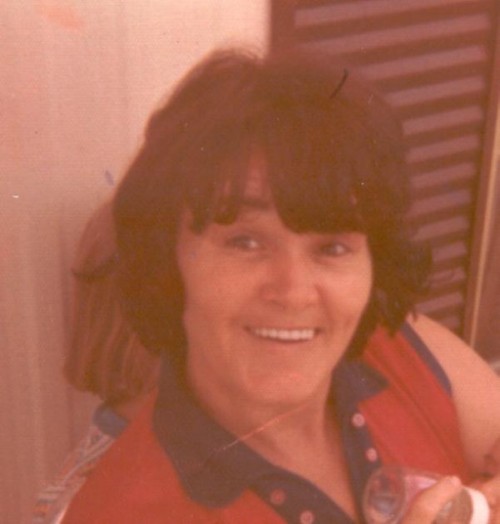
Lila Plake
August 13, 2007
Saints work on special teams errors
August 15, 2007The possible move by Houma country-music radio station KCIL 107.5 FM to the town of Jean Lafitte in southern Jefferson Parish is being challenged by a North Carolina community activist.
KCIL was granted a change in city license by the Federal Communications Commission to transfer its operation to Jean Lafitte – a town with a population of around 2,300 south of the New Orleans area – but KCIL General Manager Danny Fletcher is saying that the move is tentative.
A move to Jean Lafitte would give the station access to thousands more radio listeners than the station currently has in Houma, nearly all in metro New Orleans.
“Down the road somewhere, if it makes business sense, as for the company to do that, we can have that option,” Fletcher said.
“With the present business climate as it is, we don’t see a need to do it,” he said, but “we have a window of opportunity.”
KCIL is owned by Sunburst Media. Transferring the 107.5 radio frequency to Jean Lafitte would block that frequency’s use in Houma by another broadcaster, plus the radio frequencies adjacent to 107.5. Besides KCIL, stations KSTE 104.1 FM and KJIN 1490 AM broadcast out of Houma.
William Clay, a 59-year-old computer programmer from Charlotte who said he “believes in the old model of radio as public service,” is promising to file suit in federal court in the next few months to try to block KCIL’s move to Jean Lafitte.
He filed a Petition for Reconsideration with the FCC on June 15, 2007, objecting to the agency’s grant to KCIL of a change in city license.
Clay is claiming that Sunburst is simply manipulating FCC rules, which encourage radio stations to move to areas lacking communications outlets. No radio stations broadcast from Jean Lafitte.
Clay says that Sunburst is using the town of Jean Lafitte to get access to the crowded New Orleans radio market.
He said he chose to take action against Sunburst because the company’s attempted move was a “particularly egregious” example of corporate self-interest.
“I just stubbed my toe on this one,” he said. Clay filed three other objections with the FCC concerning radio stations in other parts of the country moving from smaller to larger areas.
“It’s obviously more profitable to be in New Orleans,” Clay said. “Jean Lafitte is window dressing.”
Peter Gutman, a Washington, D.C., attorney representing Sunburst, said that a transfer by KCIL out of Houma may boost the station’s bottom line, but both Jean Lafitte and Sunburst would benefit from the move.
He said that, since New Orleans already has numerous radio stations, establishing a broadcast operation there would serve no public interest purpose.
“Jean Lafitte, moving there does serve a public interest,” he said. “But there is the economic motivation.”
Radio stations serve the local public interest through such activities as playing public service announcements, running local business advertisements, providing access to emergency operations officials, and covering local news.
Clay is skeptical of Sunbursts’s intentions.
“You know as well as I do that Jean Lafitte will not receive public service announcements for Jean Lafitte civic clubs, and the chief of police,” he said. “There will probably be no person there” in the studio “except for a computer.”
“A PSA from the national Red Cross is just fine,” he said. “One Red Cross PSA would do the job.”
Gutmann, for his part, said that Clay would, no doubt, offer some “colorful” remarks.
“He is a radio listener in North Carolina who decided to take a stand against the FCC allowing radio stations to move to other areas,” he said.
“To Clay, the whole thing is a sham because (he says) we’re serving New Orleans, not Jean Lafitte,” he said. “As a practical matter, we’re not just serving Jean Lafitte, we will be serving New Orleans.”
“We can’t just turn our back on Jean Lafitte,” Gutmann said. Through “public-interest programming, by law, we must serve the needs of Jean Lafitte, or whatever city you’re in.”
For a city of license change, a radio station has to demonstrate to the FCC that the new place of broadcast operations is an entirely distinct community. The FCC demands this proof to ensure that radio stations move to a community with the intention of serving that place’s communications needs, not necessarily those of other areas.
In one of its applications on file with the FCC, Sunburst asserts that Houma’s population is shrinking, while Jean Lafitte’s is growing rapidly. (Jean Lafitte’s population was 2,137 in 2000, and 2,303 in 2005.)
“Jean Lafitte is not located within any urbanized area, its 70 DBU contour will cover most of the New Orleans urbanized area,” the application states.
“The most important consideration is the independence of the proposed community of license,” it states. “Jean Lafitte has a substantially different identity from New Orleans due to its Acadian culture, the more prosperous family environment and disinterest in attracting large businesses … [t]he pace is that of a smaller town than New Orleans can offer.”
Gutmann said, “We demonstrated to the FCC that Jean Lafitte had discrete needs.”
For Clay, the FCC represents the interests of broadcasters, and not the general public.
“We’re allowing public resources to be exploited for private gain,” he said, “done under the guise of increasing public benefit (for Jean Lafitte).”
“Little stations are being uprooted,” he said. Broadcasters “see dollar signs.”
“Nobody who benefits from this lives in Houma,” Clay said. “Communities like Houma lose local radio service.”
According to Clay, he is the only person trying to block KCIL’s move out of Houma.
The absence of other objections is surprising, he said. KCIL – following new FCC rules adopted earlier this year – had to announce its intention to transfer out of Houma on the station’s own airwaves once daily over four consecutive days. Previously, a station only had to make the announcement in the local newspaper of record.
Clay knows his chances of preventing KCIL’s move are extremely low. He feels the federal court will determine that he does not have standing on the case, or that he will lose on a technicality.
“It boils down to this,” he said. “Is it right to allow station owners to make a profit over Houma’s right to have public safety information transmitted, local issues, and Cajun music?”
KCIL 107.5 on the Move? * Photo by MIKE BROSSETTE











